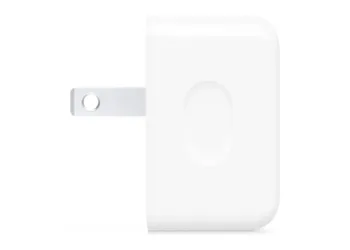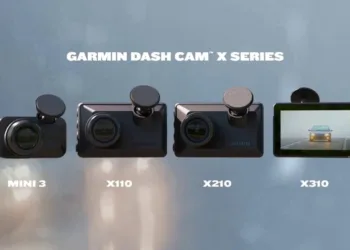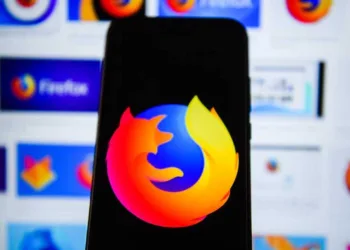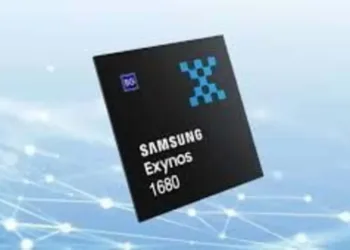Apple’s shift from Intel to TSMC for its custom silicon was a game-changer, but why did the tech giant make this critical decision? According to TSMC founder Morris Chang, the answer lies in Intel’s inability to operate as a foundry.
Table of Contents
The Apple-TSMC Partnership: A Strategic Shift
Back in 2011, Apple CEO Tim Cook decided to move iPhone chip production from Intel to TSMC. While Intel was already supplying Mac chips, Apple took just two months to finalize its decision, opting for TSMC’s cutting-edge technology and customer-focused approach.
In a recent interview with Acquired, Chang revealed that Intel had a reputation for being difficult to work with. “None of their customers liked them,” he stated. “Intel always acted like they were the only guy for microprocessors.”

Tim Cook’s Verdict: Intel “Does Not Know How to Be a Foundry”
The tipping point? Apple needed a foundry that was flexible and responsive. Chang highlighted that TSMC excelled in catering to every client request, no matter how demanding. In contrast, Intel lacked the agility and customer-centric mindset that Apple required.
A Deeper Look: The Evolution of Apple’s Chip Strategy
Apple’s reliance on Intel for Mac chips lasted over a decade before the company sought better alternatives. The primary issues included power inefficiencies, thermal constraints, and stagnation in Intel’s chip advancements. Meanwhile, TSMC was aggressively innovating, making significant strides in semiconductor manufacturing and offering superior chip fabrication technology.
When Apple introduced its M1 chip in 2020, it marked a major milestone in computing. Designed in-house and manufactured by TSMC, the M1 chip delivered groundbreaking performance and energy efficiency, making Intel-based Macs seem outdated overnight. This was the final nail in the coffin for Apple’s relationship with Intel.
TSMC’s Competitive Edge Over Intel
TSMC’s approach to chip manufacturing is fundamentally different from Intel’s. While Intel primarily focused on designing and producing its own processors, TSMC positioned itself as a pure-play foundry, manufacturing chips for multiple clients, including Apple, AMD, and Qualcomm. This strategy allowed TSMC to specialize and refine its production techniques, staying ahead in the industry.
Moreover, TSMC consistently leads in process node advancements, pioneering 7nm, 5nm, and now 3nm technology ahead of Intel. These breakthroughs have resulted in faster, more power-efficient chips that power the latest iPhones, iPads, and Macs.

Intel’s Attempt at a Comeback
Since losing Apple as a major client, Intel has been working tirelessly to revamp and strengthen its foundry business. In response to this setback, the company launched Intel Foundry Services (IFS), a strategic move aimed at attracting external clients and recapturing its competitive edge in the semiconductor industry. Through IFS, Intel seeks to offer advanced semiconductor manufacturing services to other companies, aiming to expand its reach and reclaim its dominant position in the market.
As part of its efforts to regain traction, Intel has secured several high-profile partnerships, including a collaboration with Amazon AWS. This partnership allows Intel to provide cutting-edge chips for cloud computing services, enhancing its portfolio and visibility within the industry. Additionally, the company is investing heavily in the development of advanced semiconductor technologies, including 5nm and 3nm process nodes, which are essential for the future of high-performance computing and innovation in various industries.
Despite these efforts, Intel faces a significant challenge in catching up to TSMC (Taiwan Semiconductor Manufacturing Company), the current leader in semiconductor manufacturing. TSMC’s rapid technological advancements, such as its adoption of 3nm and 2nm chip technologies, have put it ahead of Intel in terms of performance, efficiency, and production capabilities. While Intel has made strides with its investments and partnerships, it remains uncertain whether the company can close the technological and market gap with TSMC and regain its leadership position in the competitive semiconductor space.
The future of Intel’s foundry business depends on its ability to innovate and deliver next-generation chip technologies that meet the demands of an increasingly tech-driven world. Only time will tell whether Intel can reclaim its industry dominance or if TSMC will continue to solidify its leadership role.
The Takeaway
Apple’s move to TSMC wasn’t just about technology—it was about trust, innovation, and adaptability. While Intel has since revamped its strategy, TSMC’s dominance in the chip industry proves that customer-first innovation wins the race.
As the semiconductor industry continues to evolve, Apple’s decision to break away from Intel underscores the importance of agility and responsiveness in today’s fast-paced tech landscape.
For more tech insights and the latest industry updates, stay tuned!








